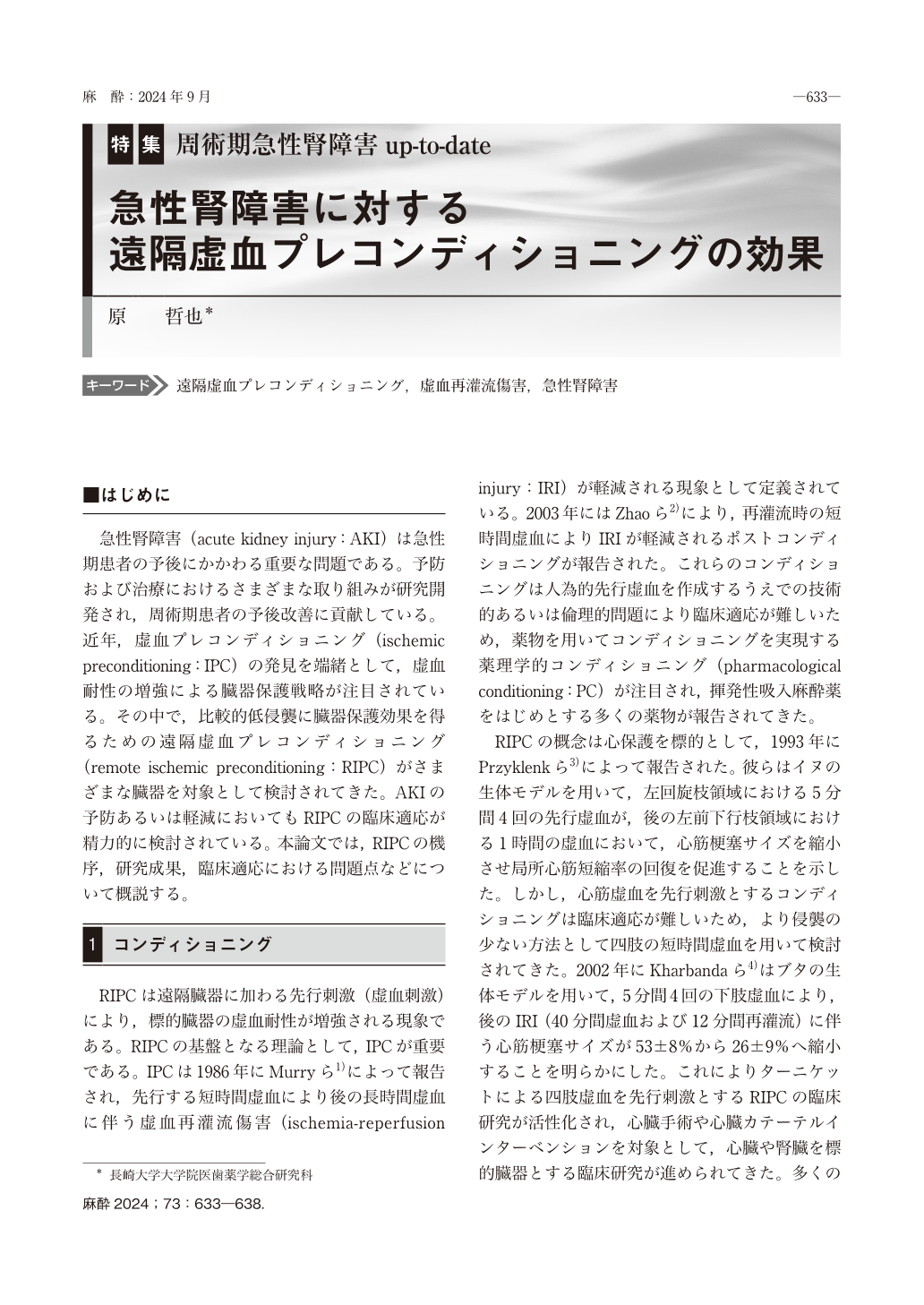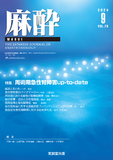Japanese
English
- 有料閲覧
- Abstract 文献概要
- 1ページ目 Look Inside
- 参考文献 Reference
はじめに
急性腎障害(acute kidney injury:AKI)は急性期患者の予後にかかわる重要な問題である。予防および治療におけるさまざまな取り組みが研究開発され,周術期患者の予後改善に貢献している。近年,虚血プレコンディショニング(ischemic preconditioning:IPC)の発見を端緒として,虚血耐性の増強による臓器保護戦略が注目されている。その中で,比較的低侵襲に臓器保護効果を得るための遠隔虚血プレコンディショニング(remote ischemic preconditioning:RIPC)がさまざまな臓器を対象として検討されてきた。AKIの予防あるいは軽減においてもRIPCの臨床適応が精力的に検討されている。本論文では,RIPCの機序,研究成果,臨床適応における問題点などについて概説する。
Acute kidney injury(AKI)is an important prognostic issue in perioperative patient management. In recent years, following the discovery of ischemic preconditioning, attention has focused on strategies for organ protection that are based on increasing patients’ ischemic tolerance. Remote ischemic preconditioning(RIPC)is a strategy in which an antecedent ischemic stimulus applied to a remote organ enhances the ischemic tolerance of the target organ. Many clinical studies have used remote ischemia of a upper or lower extremity achieved by a tourniquet with four cycles of 5-minute ischemia as the antecedent stimulus of RIPC. However, the efficacy of this strategy established in animal studies has not been consistently validated in large clinical trials. At present, it is difficult to determine the precise indications for perioperative AKI management. The choice of anesthetics used concurrently with RIPC may affect the organ-protective effects of RIPC. Further clinical research regarding RIPC is necessary before RIPC can contribute to the prevention of perioperative AKI in humans.

Copyright © 2024 KOKUSEIDO CO., LTD. All Rights Reserved.


